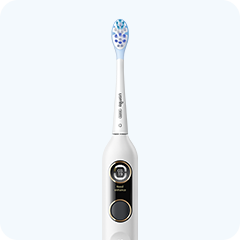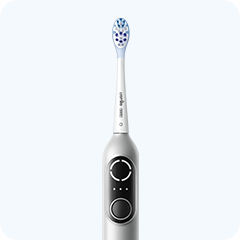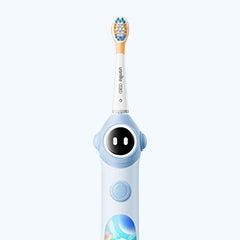When we talk about health, we often focus on the heart, lungs, or the immune system. However, did you know that oral health, acting as the body's “gateway,” is not only crucial for a bright smile but also intricately linked to overall well - being? In recent years, scientific research has continuously uncovered the associations between oral diseases and major health issues like heart disease and diabetes. Moreover, the widespread mask - wearing habits post - COVID - 19 have presented new challenges for oral care. This article, based on the latest medical findings, will explain how oral health impacts the body's immune system and provide solutions for oral care in the post - pandemic era.
Periodontal disease, or gum disease, is one of the main causes of tooth loss in adults. The core issue lies in the chronic inflammation caused by gum infections. When plaque builds up and turns into tartar, the gum tissues become red, swollen, and prone to bleeding. Bacteria and their toxins enter the bloodstream through the periodontal pockets, triggering a systemic inflammatory response. Research from the American Heart Association (AHA) has found that
people with periodontal disease have a 25% - 32% higher risk of heart disease—inflammatory factors (such as C - reactive protein) can damage the vascular endothelium, promote the formation of atherosclerotic plaques, and increase the risk of myocardial infarction and stroke<RichMediaReference>
(1)</RichMediaReference>.
Due to poor blood sugar control, diabetic patients have a decreased antibacterial ability in saliva, making them more susceptible to periodontal infections. Conversely, periodontal inflammation can affect insulin sensitivity, leading to blood sugar fluctuations. The American Diabetes Association (ADA) points out that
diabetic patients with severe periodontal disease find it three times more difficult to control their blood sugar, creating a “diabetes - periodontal disease” cycle that exacerbates both conditions<RichMediaReference>
(2)</RichMediaReference>. Regular oral check - ups and professional cleanings can reduce the glycated hemoglobin (HbA1c) level in diabetic patients by 0.4% - 1.2%, significantly improving their condition.
A healthy oral microbiome (such as Streptococcus salivarius in saliva) can enhance mucosal immunity and defend against pathogen invasion. However, when the microbial balance is disrupted (for example, the colonization of Helicobacter pylori in dental plaque), it may lead to gastritis, gastric ulcers, and even gastric cancer. Studies have shown that
oral infections are significantly associated with immune - related diseases such as rheumatoid arthritis and Alzheimer's disease, indicating that oral health is an important regulator of immune system homeostasis<RichMediaReference>[(3)](
https://www.nature.com/articles/s41574 - 020 - 0354 - 4)</RichMediaReference>.
During the COVID - 19 pandemic, mask - wearing became a daily norm. While masks effectively block respiratory viruses, they also create a warm, humid environment in the oral cavity, which promotes the growth of anaerobic bacteria responsible for bad breath. Moreover, the reduced airflow and increased mouth - breathing under masks often lead to xerostomia, or dry mouth. Dry mouth decreases saliva production, impairing the natural cleansing and antibacterial functions of the mouth, and increasing the risk of tooth decay and oral candidiasis.
-
Hydration is Key: Drink at least 8 glasses of water daily to keep the mouth moist. Sugar - free beverages and herbal teas can also help stimulate saliva production.
-
Adjust Your Oral Hygiene Routine: Brush your teeth at least twice a day with fluoride toothpaste, and use interdental brushes or floss to clean between teeth, where bacteria and food debris tend to accumulate. Consider using an antibacterial mouthwash to combat bad breath - causing bacteria.
-
Breathing Exercises: Practice nasal breathing as much as possible, even while wearing a mask. This can help maintain saliva flow and reduce dry mouth symptoms.
-
Regular Dental Visits: Don't skip your dental appointments. Dentists can detect early signs of oral problems, such as cavities and gum inflammation, and provide professional advice on personalized oral care.
Oral health is far more than just a matter of aesthetics; it is a vital component of overall health. The links between gum disease, heart disease, diabetes, and the immune system highlight the importance of proactive oral care. In the post - pandemic era, addressing the oral health challenges posed by mask - wearing is equally crucial. By adopting healthy oral hygiene habits, staying hydrated, and seeking professional dental care, we can safeguard our oral health and, in turn, support a stronger, more resilient immune system and overall well - being.






















